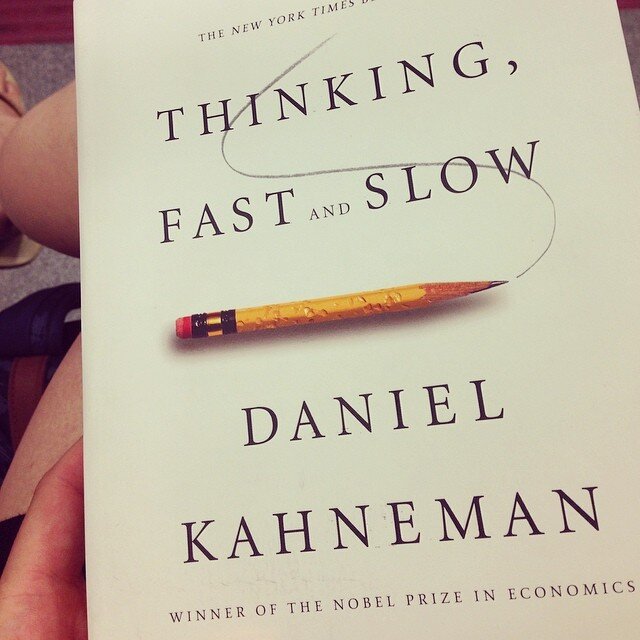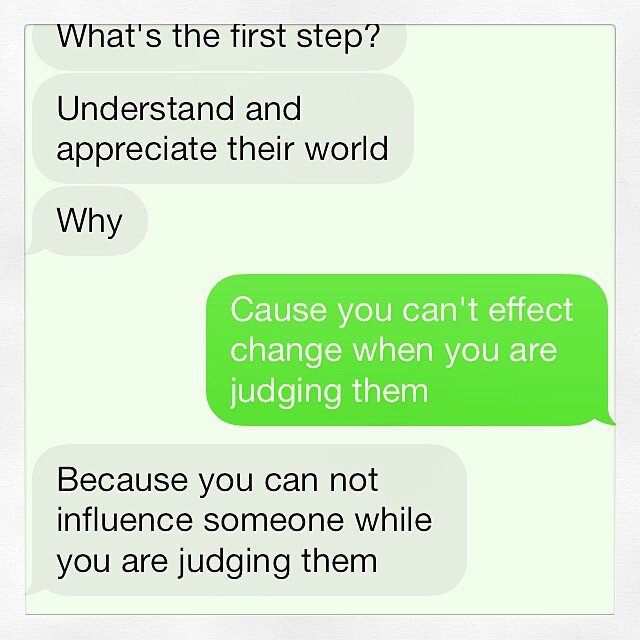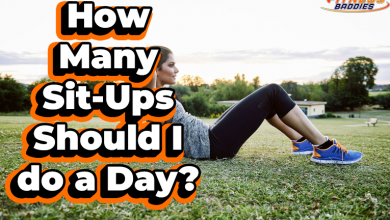The real reason Tracy, Jillian, Oz, Oprah, Selter, Mercola, Food Babe etc are winning the information game
As a trainer, I choke upon hearing some of the stuff the above names in the title spew about fitness and nutrition. Yeah, I can get indignant like it’s nobody’s business. They have columns, talk shows, magazines and full page spreads. They have hundreds of people in their gyms and buying their supplements. Their word is more respected than science.
I have done my share of indignant.
Until fairly recently.
I decided to stop railing against the fitness messages of others, and arguing against their methods. For a simple reason.
It doesn’t do anything really. You never convince anyone who is not ready to be convinced on some level. You also do a disservice to the profession at large.
But why?
Disclaimer: There is a grey area that inevitably gets brought up about speaking up on blatant misinformation, stirring up outcry over those who publicly denounce science in their approaches, or who generate baseless fearmongering, and don’t even have credentials to do so….etc. This post is not about laying low and being the fitness martyr. Not at all. I think there is a difference between speaking up productively (which I see many of my colleagues do) and engaging in pointless blogging, discussions, threads, and spending a lot of time saying why someone is wrong (which I see many of my colleagues do, and I have done as well) as well as arguing against certain “methods” because they are not yours. Wrong is very subjective anyway, but that’s another discussion. I will never shy away from pointing out misinformation when appropriate. But my approach, tactics and the value I place on it has changed. Online is also a bit of a crazy scene sometimes. There are clear trolls, and they don’t concern me.
This post itself is probably one of the biggest about-faces I have done, given my personality. And for awhile the concept grated on me a bit. It seemed, kinda defeatist or dishonorable. Boy was I wrong. I definitely trend more towards wanting to be the excited and honorable white knight, riding off to rescue your muscle cells from catabolism or lack of carbs or the evils of Tracy Anderson!
Yet, that approach is rarely successful, and largely useless…..so why are we putting time and energy into it? It was also a bit hypocritical, given that I hadn’t always known about some of things I do now.
“What Joy? What are you saying? But look at what they say about this this and this……… etc. Look how they claim this does this, and how they butcher exercise science, or mutilate the sanctity of physiology.”
“Are you saying that’s right? How could you say their advice isn’t dangerous/bad/wrong/horrible/cancer-inducing (no wait, that’s carbs)?”
Cause it’s not really. Has anyone died from green coffee bean pills for fat loss. What about from lifting only 3 lbs? Has low-carb started wars? No. Oh wait…..JUST KIDDING.
Not really.
Are *their* claims fraudulent? Sure. Sometimes. Sometimes there’s some truth mixed in cleverly.
Do they lack context? Definitely.
Are they insufferably reductionist? For sure.
Are they evidence-based? Usually not.
Do they piss all good trainers off? Duh.
Is their advice attractive? Clearly.
Does it work? For some, of course. It might stop working, or not deliver those the magical results promised, but it often does work by getting someone to make some healthier choices and get off their bum.
But it’s not their advice we need to worry about too much. Here’s why: while their advice might suck to us, it’s rarely dangerous. At best it is better then nothing and actually helps someone do something, and at worse it’s a complete lie and frustrating. Sometimes it is even close to being labeled dangerous (think irresponsible coaches, or fanatical naturalists).
But what’s really dangerous is that people don’t have anything to compare it to.
What they see is all there is.
This is a concept from the book “Thinking Fast and Slow” by Daniel Kahneman. He says, “(There is ) remarkable assymmetry between the ways our mind treats information that is currently available and information we do not have....Information that is not retrieved (even unconciously) from memory might as well not exist….(we) construct the best possible story that incorporates ideas currently activated, but it does not (CANNOT) allow for information it does not have.”

Read that again.
This is a very powerful thing to understand; we cannot take into account information we do not have, and ideas we have not been exposed to!
Who has the biggest audience? Who do you see most of? Who gets talked about? Those people in my title aren’t what we need to be scared of. We need to be scared of the fact that they are the only ones some people know of! That’s really the danger. Not their lukewarm information.
This is the power of a big reach. And it’s important to take it seriously because; what you (they) see is all there is. Their world is made up of the information in it. Want to change their world? Change what they see. Not simple at all, I know.
Take an audience member from an Oprah show for instance. Chances are you wouldn’t get someone who’s a complete moron (though you’d have to allow for that chance). They probably are a normal person, with reasonable intelligence, who is willing to or thinks they can decide rationally when presented information (to a degree). They want information to stay in “good health” and actively seek it out. They want better knees, a better sex life, to pass their yearly physical and pick up their kids. Maybe run a couple 5K’s. They don’t want to think that heart disease and osteoporosis are in their future, but it almost seems inevitable with what they see around them. They “know” that eating “healthy” and exercising are “right”so they buy vitamins, flax seeds and fish oil. They check for breast and colon cancer and buy the lower sugar cookies. Their weight goes up steadily in their middle age and they stop moving around as much. They take several medications and see a therapist for their bum shoulder. They buy a treadmill or elliptical, with the intention to use it…..sometime. Won’t it just sitting there motivate them? Or the cost of it motivate them to use their investment?
They aim to take care of their health, and all their decisions are based on what they know to be “good information”. What they see is all there is. TV, Prevention magazine, Fox News, Oprah magazine, Men’s Health, Women’s Health, the trainer at Goodlife and Planet Fitness.
Strength training? Energy equation? High intensity exercise? Carbs are ok? No dieting? Meditation? Do they hear of that a lot?
Probably not.
But anyone can find *good* information right? It’s right there on the internet!
Yet why is it never that simple?
I mean, it’s true. You can google anything. How does one define good? How do they filter it?“We often fail to allow for the possibility that evidence that should be critical to our judgement is missing — what we see is all there is.”
People don’t inherently know that the information they have is not the best, somehow. Or incomplete. Or less than optimal. You can’t account for information you don’t have. Even when getting subpar results, when we look around at what the majority sees, learns, does, perpetuates…..it’s not very encouraging right?
When making a judgement we often forget to think about the pieces we are missing, and we just work with what we have. This is ok. This seems like a such a vague concept, but in my opinion it encompasses what we mean when we say “keep learning”. Being open to learning, means taking this concept to heart. That you are limited by your view of the world and the information contained in it. How can we pass that on to those we want to influence?
How would you know if Alan Aragon is more useful than Dr. Mercola? Does popular fitness information encourage critical thinking, scientific literacy and sound reasoning? Not if you are getting it from the people in the title.
You/They need to ask, “What would I (they) need to know before I (they) have formed an opinion about the quality of someone’s information?” (paraphrased)
As a coach, we are in a better place to ask that for someone, and help lead them successfully to answers. Because we see more of the bigger picture.
Dan Pfaff, one of the coaches at the World Athletics Center said that one of his recommendations for beginner coaches was to read, experience and learn widely. Different methods, coaches and philosophies. That wide base allows you narrow down your approach better, and learn how to “separate the wheat from the chaff.” (That bible analogy just fit perfectly). Expose yourself to a lot. In this era of information overload, this can seem counterintuitive sometimes because there IS so much… so that’s why be sure to read the next post about scientific thinking.
The second part to influencing someone’s belief or education on a topic is evident in this quote:
“Understanding a statement must begin with an attempt to believe it: you must first know what the idea would mean if it were true. Only then can you decide to UNbelieve it.”
(This is also a sacred sentence if you plan on debating. First make sure you understand the other persons stance correctly.)
When challenging someone’s “story” of their world, and the information they have used to make it coherent to them (it’s genetics, it’s GMO’s, its lack of time, it’s carbs, its poverty, its Monsanto, it’s vaccines, it’s chemicals….) first engage them on a level that allows UNbelief to eventually be possible. And to do that, you need to understand how their belief was created, and where they got the information from. Why it seems to make sense to them, and how easy it is for them to connect the dots, even when those connections (correlations) are not part of the cause, or only a very small part. You have to account for information that is unavailable to them.
In this age of information overload, you also have to account for a lack of understanding of how to evaluate information. So just more information or exposure to it, is just part of it.
But unless you can get someone to question, wonder or doubt, you will not get them to entertain an alternate theory eventually.
Exposure and suggestion (plant a mind virus) allows for comparison and doubt which leads to questions, insecurity and curiosity which encourages research and discussion and can then lead to growth and change.
Its uncomfortable to think that we don’t know what we don’t know. People will cling strongly to that which they FEEL they know, especially when challenged on a belief. Challenging beliefs should happen, and we need those who are willing to challenge (remember my disclaimer please). Having a belief challenged, is uncomfortable, and creates a lot of resistance, and often alienation from the very people we want to influence. Maybe it’s often because we don’t give enough consideration to; what they see is all there is. We can be trying to shove more in their “view”, but we do it in a way that fails to be effective.
What’s the first step to influencing someone? Understand and appreciate their world. Know where they are coming from.

People WANT explanations. They WANT information for why their world is the way it is. They are looking to be secure in what they know. In the absence of a way to compare and evaluate information or practice in doing so, those messages that appeal to our emotions, senses, desires and insecurities are most attractive to us. This is why talk shows, diet promises, fear-mongering, conspiracy theories, and sensationalism are appealing.
They attract us on a emotional level, and encourage us to form a coherent story and connect the dots to come up with an explanation and story for our fitness or health, or lack thereof.
Why am I fat?
Why am I unhealthy?
Why am I aching?
Why am I not making progress?
Why am I in pain?
Why is obesity rising?
Why am I unfit?
What can those who care about the quality of information do?
1.) People look for information on topics they care about. Are you addressing those topics?
Maybe one lesson we can take from the Food Babe is that she hit on a topic that a lot of people are really concerned about; where our food comes from and what’s in it. Processed food, massive grocery chains and huge agriculture companies are a relatively modern concern, and people don’t know what to think! Conspiracy theories are rampant. New stories are alarming. Obesity and disease rates are alarming. There’s plenty of dots to connect, especially when someone does it for you. It can sound perfectly logical, and be perfectly wrong.
James Fell writes articles that are humorous but accurate and evidence-based, and he addresses popular themes when they arise. Maybe that’s not your niche, but I am glad I can link him. He addresses topics that are at the forefront of “what we see”, like the Food Babe debate.
People want to know about supplements, herbal cures, etc. Examine.com has done a great job of providing a evidence-based resource that is gaining popularity and credibility. They are building an influence that could combat Mercola!
What about the whole argument that science often doesn’t seem to make sense. Are we helping put out information about scientific literacy to combat those who clamour for everyone to ignore “studies” and claim that “science is always contradictory”? Alan Aragon, Greg Nuckols and Jamie Hale do a great job of that.
Jen Sinkler has a new Women’s Health online column, and Mark Fisher Fitness is taking over New York! Both are examples of fitness professionals with a great message (evidence-based, bullshit free) gaining popularity.
2.) Think critically yourself, and be ready to build that quality in your clients. Don’t stoop to the same levels in your arguments. Practice negative capability. The ability to distance yourself emotionally from information and opinions.
3.) Are we putting out evidence-based information that can act as a comparison? No matter what your niche, are you someone “better” to compare to?
When I first came across Martin Berkhan’s blog and read his nutrition information, the one thing that hooked me was that it was the first time someone was explaining the science of nutrition clearly, with lots of links and citations. Suddenly I had a higher standard to compare to! I wasn’t prepared to understand and dissect all that info, but it was the start. My eyes were opened. Plenty of other sites do this by linking studies, so I agree that this is not the be-all-end-all. There is no one right answer, but a repeated comment I have gotten from clients, is that they appreciate my openness, my willingness to share where I get my information, what it’s based on, and explain why certain ideas or concepts are not evidence-based.
There will always be people who blatantly wish to stay blind to learning, growing or improving. Forget about them. You can’t touch them anyway. Don’t fight that battle to the detriment of others who do need you in the fitness arena.
If we want to whine about the media and those we see get all the press, we can. But as far as I know, it’s not going away. I don’t watch TV. I got rid of Netflix, but I am on Facebook quite frequently. Almost no one is immune to the reaches of the media, and certainly not our clients on this side of the world. The media is where many people get their information from. If we want good information to be more normal, and more pervasive, we should work harder to contributing to it’s circulation and popularity. Both through social media and in-person.
And lastly,
3.) Are we engaging people on a level that allows for growth?
If we don’t respect the process of how UNbelief can happen, then we waste a lot of time trying to change beliefs, and not getting anywhere. Expose, question, tickle curiosity.
I guess the best thing you can ever do is make someone wonder and then be ready to help guide them.
Compare, wonder, grow. But none of this is useful if you as the trainer or coach don’t stay true to what makes you better in the first place than all those people I listed: stay evidence-based, outcome drive and open to learning.
We all know, the more you know, the more you realize how little you know. And that’s ok. A bit scary though. Once you realize how little you know, it’s less secure to put yourself out there and you certainly have to be more careful about black and white statements, useless negativity and “claiming”. But it’s worth it.
It’s worth it in terms of being better. Better at what you do.
Thanks for reading about my personal lesson.
Contribute to someone’s wonder because; “Wonder is the beginning of wisdom.”
― Socrates
P.S. A friend gave me some good feedback on this topic that I felt it was worthy to share. I have a couple friends who think even bigger picture than me (that’s part of why I like them). He said we need to put more work into “what these people are doing to build platforms and doing it with quality information.” I agree. Why does shit content proliferate and good content die? This is something more of us need to figure out. I think Mark Fisher Fitness is at the forefront of this idea. Jahed Momand talked about it as well in an interview with Evil Sugar Radio. Who are we competing against? It’s not just the names I mentioned, its a host of social and economical variables too. It boggles my mind to think about it! So I’ll leave it off here…..to be cont.



